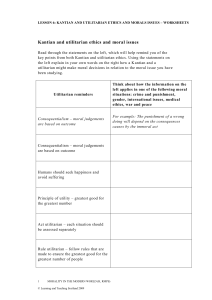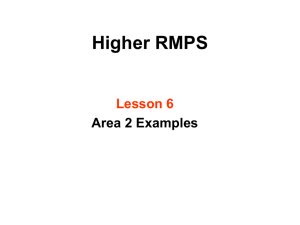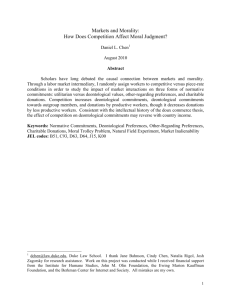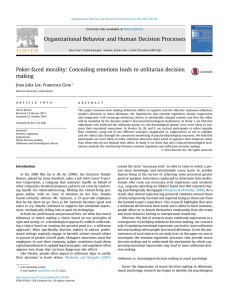Kant vs. Mill in the Brain: Neural Activity Correlated with Outcome(s
advertisement
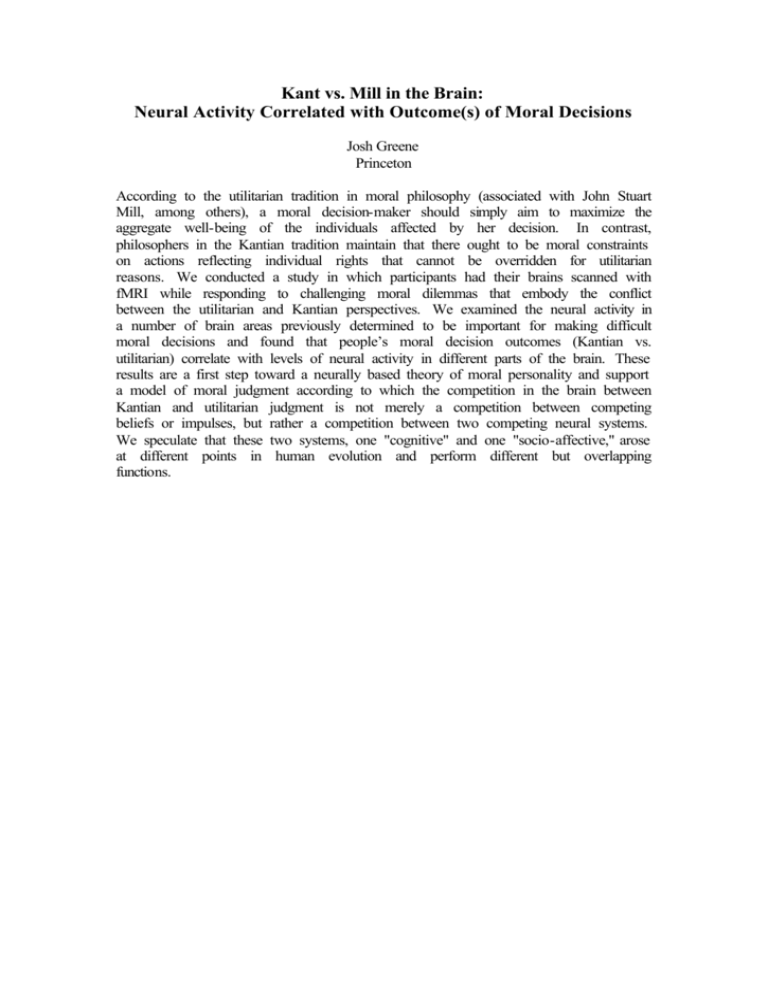
Kant vs. Mill in the Brain: Neural Activity Correlated with Outcome(s) of Moral Decisions Josh Greene Princeton According to the utilitarian tradition in moral philosophy (associated with John Stuart Mill, among others), a moral decision-maker should simply aim to maximize the aggregate well-being of the individuals affected by her decision. In contrast, philosophers in the Kantian tradition maintain that there ought to be moral constraints on actions reflecting individual rights that cannot be overridden for utilitarian reasons. We conducted a study in which participants had their brains scanned with fMRI while responding to challenging moral dilemmas that embody the conflict between the utilitarian and Kantian perspectives. We examined the neural activity in a number of brain areas previously determined to be important for making difficult moral decisions and found that people’s moral decision outcomes (Kantian vs. utilitarian) correlate with levels of neural activity in different parts of the brain. These results are a first step toward a neurally based theory of moral personality and support a model of moral judgment according to which the competition in the brain between Kantian and utilitarian judgment is not merely a competition between competing beliefs or impulses, but rather a competition between two competing neural systems. We speculate that these two systems, one "cognitive" and one "socio-affective," arose at different points in human evolution and perform different but overlapping functions.








